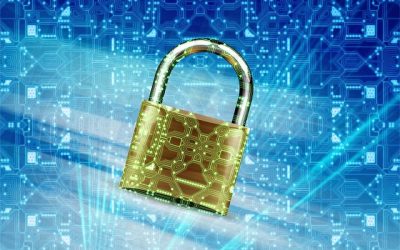
For decades, people and businesses that wanted to use software for accounting would have to purchase a program and install it on their computer. All of the company’s bookkeeping would have to be done on one machine. Today, readily available, fast internet speeds have made websites capable of handling vast amounts of data with no lag time. All of the functions previously available in desktop applications are now web-based. Instead of being stored on a computer’s hard drive, your data is encrypted and stored on servers. Moving to a cloud accounting program, you may be wondering how secure it is. Let’s take a look at what happens to your information in the cloud.
The Risks of Local Storage
Believe it or not, cloud accounting is a much safer alternative to local storage. Having all of your information on a hard drive in your office is a huge risk. If your office is flooded or there is a fire, your hard drive will not survive. If your computer is lost or stolen, all of your sensitive data will be in the hands of thieves, and it is very likely that you will have left your password auto-fill feature on.

Hard drives fail all the time. Internal and external hard drives have a shelf life and chances are good that you’re not upgrading your systems as often as you should. Even if you are diligent about backing up your computer daily, the timing of your sync could still cost you data.
Local storage also means local connection. Your internet connection is protected by a very weak firewall compared to advanced data encryption. If you’ve ever opened a spam email or accidentally clicked on a popup you could have exposed your information to hackers, viruses, and ransomware.
How Does the Cloud Work?
‘Cloud’ is a relatively new term for the internet. It simply means stored offsite. When you log into your email, you are accessing the cloud. Your emails are not stored locally on your hard drive; they are accessed through a server. The same principle applies to accounting. Logging in to QuickBooks or your program of choice – you will have access to your information via the cloud.

Everything you enter on a cloud accounting site is encrypted, which means that it is converted into code. The code is only decipherable with a decryption key. This is the same technology that makes it safe to pay bills online.
Cloud servers are also backed up to several locations constantly and in real time. The storage redundancy means that even if there’s an earthquake or flood, your information is duplicated in a separate location. If one server fails, you won’t lose your information.
What About Data Breaches?
It seems like every year there’s a new data breach that terrifies the nation. Hackers have punctured the security of major retailers, credit card companies, banks, and credit reporting agencies. Marriott, Equifax, Target, eBay, JP Morgan Chase, and Yahoo are some of the heavy hitters that have made headlines with data breaches. The good news is that the customer is almost never the target of these attacks. If you have an account with any of these companies, it’s very likely that nothing ever happened to your information.

Vigilant security is the key to stopping data breaches. Cloud accounting services employ multi-step authentication for accessing your account, which can include but are not limited to PIN numbers, text verification, customer ID numbers, passwords, and user IDs. Server clusters are protected by 24/7 on-site security. Data encryption ensures that employees cannot see your information even on the back end.
QuickBooks employs the most advanced security methods available to protect its clients: advanced SSL and RSA data encryption technology, multi-factor authentication, and digital certificate technology provided by VeriSign. Let JADDE Financial Solutions be your portal to the security of QuickBooks online.



